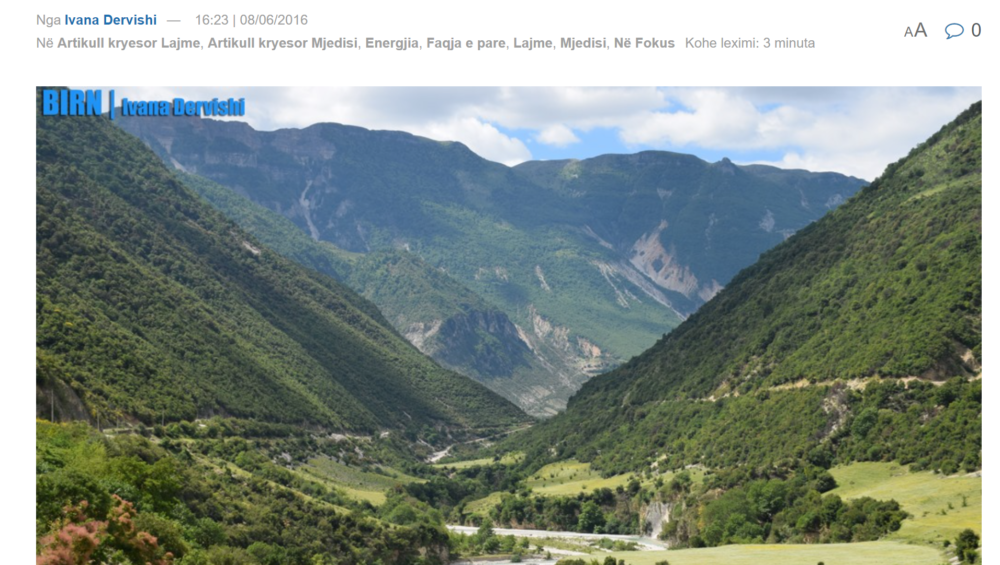By Ivana Dervishi / BIRN
Albanian and foreign researchers discussed the unique wealth of biodiversity of the Vjos River and asked the Albanian government for a 3-year moratorium on its use for hydropower.

About 50 professors and researchers signed on Wednesday a request addressed to the Ministry of Environment in Albania for the implementation of a 3-year moratorium on constructions on the Vjosë River and its tributaries.
Gathered within the scientific conference “Vjosa: a special opportunity for European River Science”, Albanian, German and Austrian researchers from various fields presented their research on the biodiversity of the Vjosa valley and called for the protection of the area.
They requested that the authorities give time to the experts to make detailed assessments on the hydrological, sedimentological and ecological structure and dynamics, as well as for Albania to engage in the EU’s regional programs for sustainable development.
Professor Elda Marku from the Department of Chemistry at the University of Tirana emphasized the lack of detailed studies from the chemical aspect of the Vjosë River and called for more research.
“Chemical pollution in Vjosa is not possible to understand on a real scale because the data is missing. A report on the quality of rivers in Albania in 2014-2015 by the National Environment Agency did not include Vjosa,” she said at the conference.
Albanian researchers discussed the geographical, biological, ecological aspects of the Vjosë River, while their colleagues from the University of Vienna and Berlin analyzed river management and shared their experience in preserving river ecosystems.
Professor Spase Shumka from the Department of Natural Sciences of the Agricultural University of Tirana also expressed regret for the lack of studies on the biodiversity of Vjosa.
“Vjosa has a variety of species, some of them quite special, which will disappear if we allow the destruction of the river. The loss of Vjosa also means the loss of the Hotova Spruce park, as it serves as a source for living things,” said Shumka.
“Hydropower is one of the five main threats to Vjosa. From our research, we noticed that 90 percent of the species are living from 2 to 6 years, this is less than their normal lifespan and comes mainly from HPPs”, concluded the professor.
The conference organized by the Faculty of Natural Sciences in Albania, the University of Vienna in Austria and the University of Natural Resources and Life Sciences in Vienna is part of a larger effort to protect the 270-kilometer course of the Vjosë River.
The full article published by Reporter.al can be found here (in Albanian).







